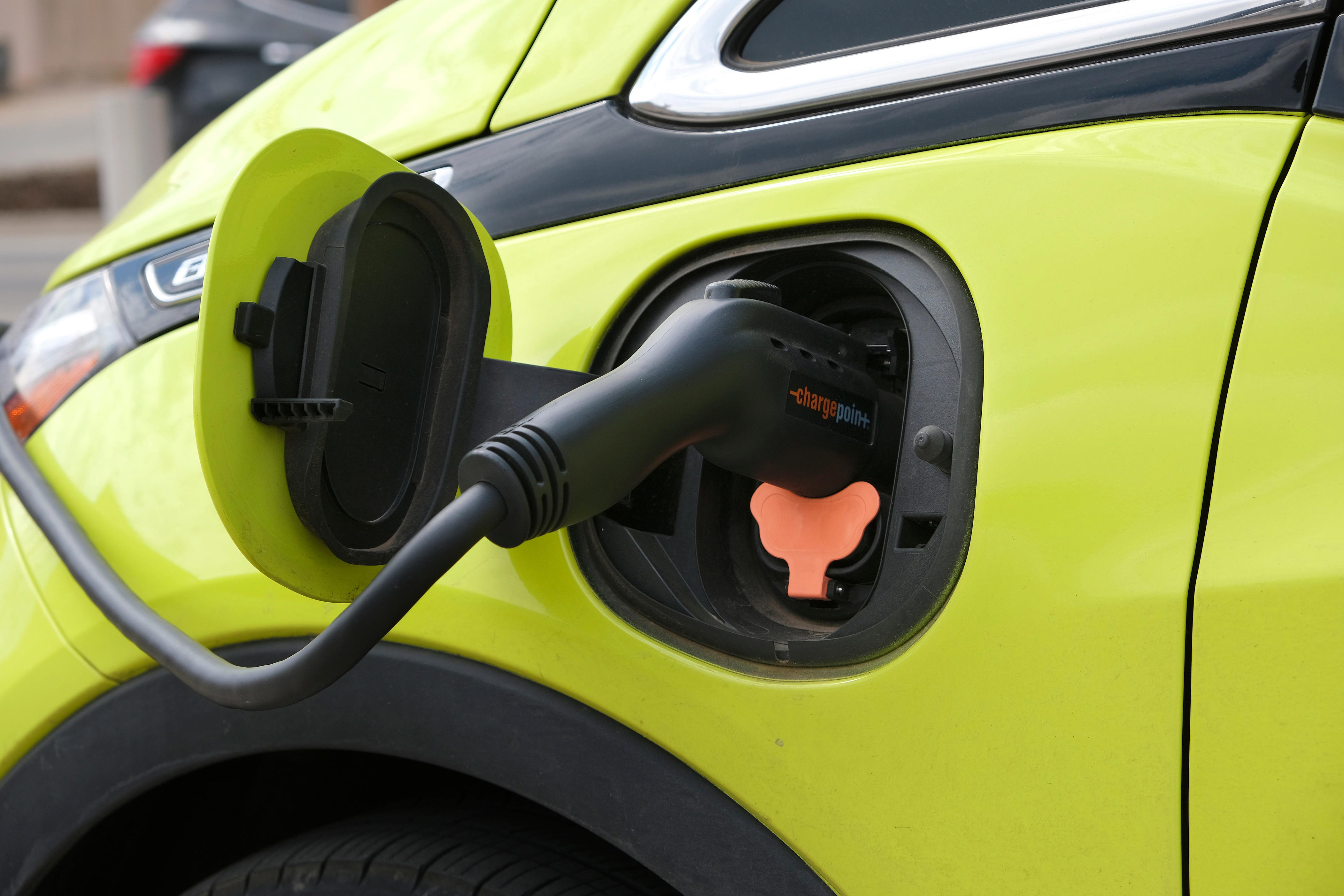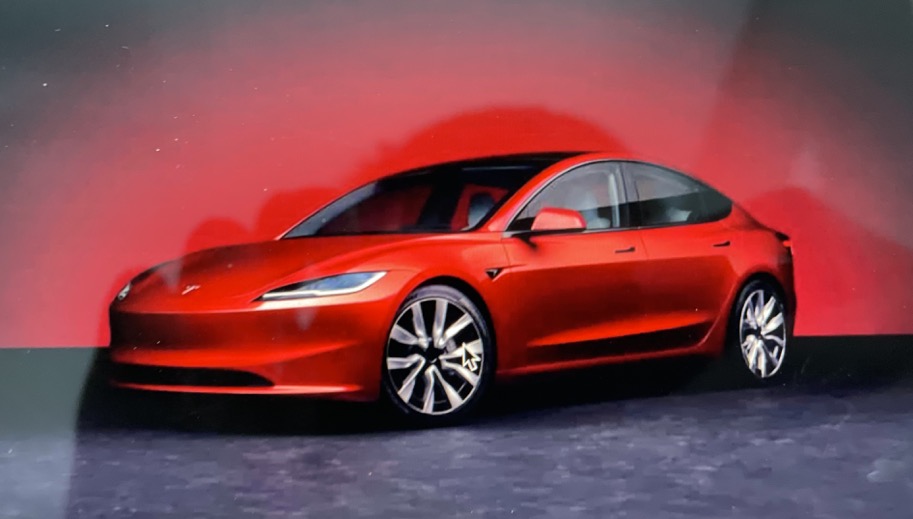Top 10 Electric Cars That Qualify for Tax Credit 2025 You Should Consider
Electric cars that qualify for tax credit 2025 are becoming increasingly popular among consumers looking to reduce their carbon footprint while benefiting from substantial financial incentives. The transition to electric vehicles (EVs) represents a significant shift in how we approach transportation, and with the right information, you can make an informed decision on which vehicle to choose.
Introduction
As the world shifts towards greener energy solutions, electric vehicles play a crucial role in addressing climate change and reducing our dependency on fossil fuels. The introduction of government-backed tax credits is designed to encourage consumers to adopt cleaner transportation options. With many manufacturers ramping up their production of electric models, it’s essential to understand not just which cars are available but also what financial benefits come along with them.
Why Tax Credits Matter When Buying an Electric Car

Tax credits significantly lower the overall cost of purchasing an electric vehicle, making them more attractive to potential buyers. These incentives provide a one-time reduction in tax liability, allowing you to save a considerable sum when you purchase your new car. This strategy not only incentivizes consumers to switch to electric but also supports national goals related to environmental sustainability.
When considering the long-term cost savings associated with owning an EV—such as reduced fuel costs and lower maintenance expenses—tax credits can influence buyer decisions immensely. Moreover, some states offer additional incentives, such as rebates or grants, further enhancing the financial appeal of making the transition to electric.
Overview of the 2025 EV Tax Credit Program
The 2025 EV Tax Credit Program is part of a larger initiative aimed at accelerating the adoption of electric vehicles by making them more financially feasible for consumers. The program outlines specific criteria that must be met for a vehicle to qualify for a tax credit, including factors like battery capacity, manufacturing location, and consumer eligibility based on income levels.
It’s essential to stay updated on these requirements, as changes in legislation can impact the types of vehicles that qualify and the amount of credit available. By understanding the nuances of the program, prospective buyers can navigate the complex landscape of EV ownership with greater ease.
Understanding the EV Tax Credit

Tax credits for electric vehicles are designed to promote a transition toward sustainable transport. But how do they work? Here’s a deeper look into the intricacies of the EV tax credit system.
What Is the EV Tax Credit and How Does It Work?
The EV tax credit is a financial incentive offered by the federal government to encourage individuals to purchase electric vehicles. Under this program, qualified taxpayers can claim a credit against their federal income tax liability for the purchase of an eligible electric vehicle. Generally, these credits can significantly offset the initial price of the vehicle.
The value of the credit varies depending on the battery size and the manufacturer’s total number of qualifying vehicles sold. For instance, a manufacturer may phase out the credit once they have sold a certain number of EVs. Therefore, it’s vital to research each vehicle’s eligibility before making a decision.
Key Requirements for Electric Cars to Qualify in 2025
For a vehicle to be eligible for the EV tax credit in 2025, several criteria must be met:
- Battery Capacity: Vehicles often need to have a minimum battery capacity (usually around 4 kWh) to qualify for any credit. Higher capacities typically lead to larger credits.
- Manufacturing Location: The vehicle must be manufactured in North America to ensure that subsidies benefit local economies. This encourages domestic production and job creation.
- Price Caps: There may be limits on the vehicle’s purchase price; luxury models may be excluded from receiving tax credits to ensure that benefits primarily reach lower- and middle-income consumers.
Understanding these requirements helps ensure you’re choosing an electric vehicle that qualifies for full tax credits, thereby maximizing your savings.
How Much Can You Save with the 2025 EV Tax Credit?
The savings from the EV tax credit can vary widely. Federal tax credits can range from $2,500 to $7,500, depending largely on the model and battery size. If you factor in state incentives, which may offer additional rebates or benefits, the total savings can become even more substantial.
Moreover, owning an electric vehicle often translates to ongoing savings over time. Lower operational costs, tax deductions for charging stations, and minimal maintenance needs all contribute to long-term financial benefits. Thus, while the initial investment might be high, the cumulative savings make the switch to an electric vehicle appealing.
Top 10 Electric Cars That Qualify for Tax Credit 2025
Here are ten electric cars that qualify for tax credit 2025 that you should consider. Each vehicle combines performance, efficiency, and technology, making them suitable for various consumer needs.
Tesla Model 3
Tesla continues to dominate the electric vehicle market, and the Model 3 remains a favorite among consumers.

- Overview: This compact sedan boasts impressive acceleration, cutting-edge technology, and an extensive charging network. Its minimalist interior design and intuitive infotainment system attract tech-savvy buyers.
- Price: The starting price for the Model 3 is approximately $40,000, making it more affordable than other Tesla models without sacrificing performance.
- Tax Credit: Depending on the configuration, buyers can expect to qualify for up to $7,500 in tax credits, making this an attractive option for those looking to purchase a premium EV.
Chevrolet Bolt EUV
Chevrolet’s Bolt EUV is another excellent choice among electric cars that qualify for tax credit 2025.
- Overview: With a spacious interior and practical range, the Bolt EUV is perfect for families. It offers a generous cargo space and advanced safety features, positioning itself well within the competitive EV market.
- Price: Starting around $33,000, the Bolt EUV provides affordability without compromising essential features.
- Tax Credit: Eligible buyers can take advantage of a maximum federal tax credit of up to $7,500, making it an economically viable option for many.
Ford F-150 Lightning
Ford has reimagined its classic F-150 truck as an electric version, and the F-150 Lightning is turning heads.
- Overview: Combining the rugged utility of a pickup with electric efficiency, the Lightning offers impressive towing capacity and innovative features like onboard power outlets.
- Price: Prices start around $39,900, making it competitive within the truck segment.
- Tax Credit: Buyers can benefit from up to $7,500 in tax credits, making this powerful EV both functional and financially appealing.
Hyundai IONIQ 5
The Hyundai IONIQ 5 has quickly gained attention for its striking design and advanced tech features.

- Overview: This crossover offers ample passenger space and an impressive range, coupled with rapid charging capabilities. Its unique styling sets it apart from conventional vehicles.
- Price: The starting price for the IONIQ 5 is approximately $45,000, placing it in a more premium bracket.
- Tax Credit: It qualifies for a federal tax credit of up to $7,500, making it a compelling choice for eco-conscious consumers.
Kia EV6
Kia’s EV6 is another standout in the electric SUV category.
- Overview: With a sleek design and high-performance specs, the EV6 appeals to drivers who appreciate speed and style. Its spacious interior and modern technology enhance the driving experience.
- Price: Starting around $40,000, it’s competitively priced for an electric SUV.
- Tax Credit: Eligible buyers can receive up to $7,500 in tax credits, making it a smart investment for those interested in electric vehicles.
Volkswagen ID.4
Volkswagen’s ID.4 is the company’s first all-electric SUV, making waves in the industry.
- Overview: Offering a balance of performance and practicality, the ID.4 provides a roomy interior, innovative tech, and a solid range, making it ideal for daily commutes and road trips alike.
- Price: The base price starts around $39,995, placing it within reach for many consumers.
- Tax Credit: Buyers can qualify for a federal tax credit of $7,500, enhancing the affordability of this stylish SUV.
Rivian R1T
Rivian’s R1T marks an exciting entry into the electric adventure vehicle segment.

- Overview: Designed for outdoor enthusiasts, the R1T comes equipped with off-road capabilities, ample storage, and unique features like a built-in kitchen and gear tunnel.
- Price: Starting around $67,500, it may be pricier than others on this list, but it offers unparalleled versatility for adventurers.
- Tax Credit: Eligible buyers can receive up to $7,500 in tax credits, softening the financial impact of this innovative vehicle.
Nissan Ariya
Nissan’s Ariya is a fresh take on the electric SUV, emphasizing comfort and connectivity.
- Overview: With its chic design and advanced technology, the Ariya offers a smooth ride and a variety of configurations to suit different driving needs.
- Price: Starting at approximately $40,000 makes it competitively priced among its peers.
- Tax Credit: Buyers can expect to qualify for a federal tax credit of up to $7,500, making it an attractive option.
Jeep Grand Cherokee 4xe
The Jeep Grand Cherokee 4xe combines electrification with familiar ruggedness.
- Overview: As a plug-in hybrid, it offers off-road capability alongside electric efficiency, making it suitable for adventurous drivers. It’s a versatile option for both urban and rural settings.
- Price: Starting around $60,000, it positions itself in the luxury SUV market.
- Tax Credit: Buyers can receive significant tax credits that help offset the initial cost, enhancing its appeal.
BMW i4 eDrive35
BMW’s i4 eDrive35 delivers a stunning blend of luxury and performance.
- Overview: With sporty handling and an elegant interior, the i4 emphasizes driving pleasure while still being eco-friendly. It showcases BMW’s commitment to electrification.
- Price: Starting at about $56,000, it caters to the luxury electric vehicle segment.
- Tax Credit: Eligible buyers can qualify for a tax credit, potentially up to $7,500, easing the upfront financial burden of this premium offering.
How to Check If a Vehicle Qualifies for the EV Tax Credit

Understanding how to check if a vehicle qualifies for the EV tax credit is essential to securing your savings.
VIN Lookup and IRS EV Eligibility Tools
To ensure a vehicle qualifies for the EV tax credit, you can utilize the VIN (Vehicle Identification Number) lookup tool provided by the IRS. By entering the VIN, you can verify whether the vehicle meets the necessary criteria for tax credits. Additionally, many manufacturers provide information on their websites regarding the eligibility of their models.
Final Assembly & Battery Component Rules
The eligibility criteria also include stipulations regarding where the vehicle is assembled and key components, particularly the battery. For instance, the sourcing of critical minerals used in batteries can affect a model’s qualification status. Understanding these rules will help you select a vehicle that not only fits your lifestyle but also qualifies for the maximum tax credit.
Common Disqualifiers Buyers Should Know
There are certain common disqualifiers to be aware of. For example, if a manufacturer has already sold an excessive volume of qualifying vehicles, their models may no longer be eligible for the tax credit. Furthermore, luxury features and prices above set caps can also lead to disqualification. Staying informed will help you avoid pitfalls when selecting an electric vehicle.
Tips to Maximize Your EV Tax Credit in 2025

Maximizing your savings through the EV tax credit requires a strategic approach.
Combine Federal and State Incentives
One of the best ways to increase your tax savings is to combine federal incentives with state and local programs. Numerous states offer additional rebates or tax credits to encourage EV adoption, which can significantly reduce your overall purchase price. Research your state’s offerings to capitalize on every available opportunity.
Shop Early to Avoid Manufacturer Cap Limits
Many manufacturers face limits on the number of vehicles eligible for tax credit after reaching a sales milestone. Shopping early in the year or as soon as new models are released may enable buyers to secure a credit before it phases out. Staying ahead of the curve ensures you don’t miss out on valuable savings.
Consider Used EV Tax Credit Options
In addition to new models, there are options for used EV tax credits. The federal government allows some buyers to claim a credit for purchasing used electric vehicles, broadening accessibility to tax incentives. This option can open up opportunities for budget-conscious buyers looking to make the switch to electric without investing in a brand-new model.
Video

Conclusion

Navigating the complex landscape of electric vehicle ownership doesn’t have to be daunting. By understanding the electric cars that qualify for tax credit 2025, you can maximize your savings and make informed decisions that suit your lifestyle and budget.
Which EV Is Right for You in 2025?
Choosing the right electric vehicle depends on various factors, including your driving habits, budget, and personal preferences. Whether you prioritize performance, family-friendly features, or cutting-edge technology, there’s an electric vehicle out there to meet your needs.
Final Thoughts on Electric Cars That Qualify for Tax Credit 2025
As the EV market continues to grow, so too do the options available to consumers. Understanding how to maximize tax credits, combined with knowledge of the latest models, empowers buyers to make choices that align with their values. Embrace the future of transportation today by exploring the electric cars that qualify for tax credit 2025 and enjoy the benefits of a cleaner, more sustainable driving experience.
You can read: Everything You Need to Know About Federal Tax Incentives For Electric Cars



